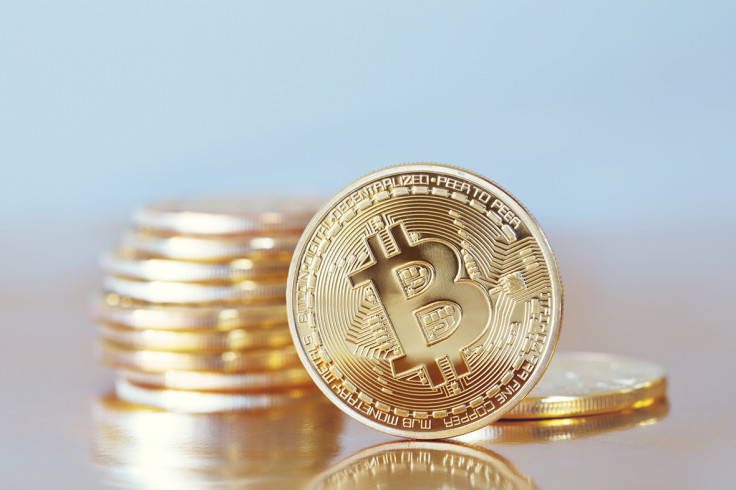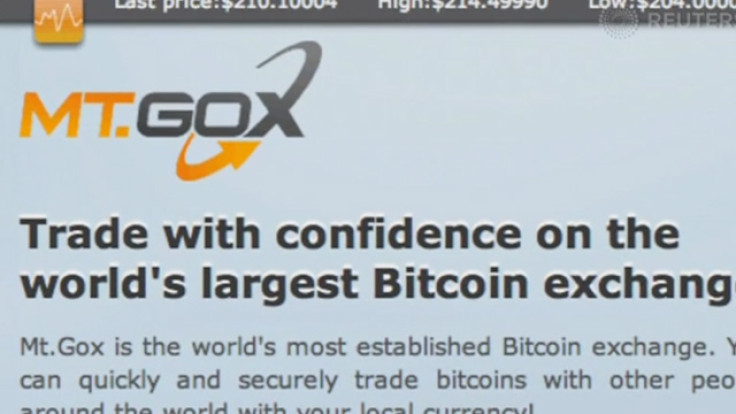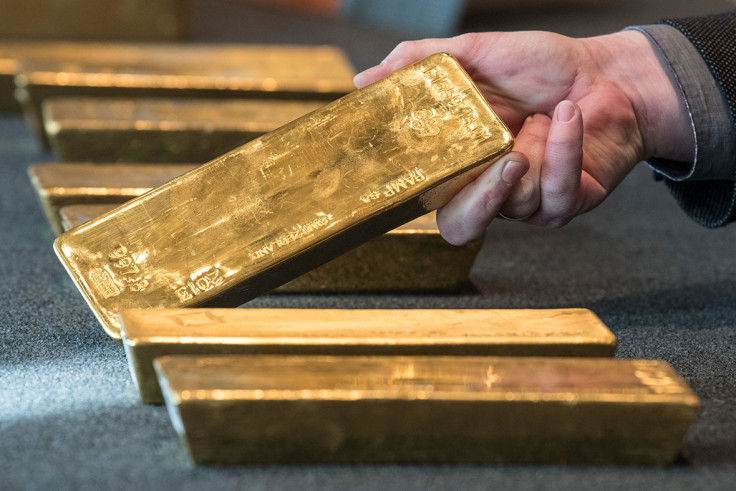Squaring bets on gold to Bitcoin plays akin to pitting apples against oranges
Uptick in yellow metal's price and cryptocurrency's rise have started daft comparisons.

US President Donald Trump's never-ending unconventional antics have ensured safe-haven demand for gold; the ultimate zero income yielding fool's commodity bought on the specific premise of liquidation in lean times or opportune climes for more than what it was acquired for.
Concurrently, cryptocurrency Bitcoin, which operates without a central repository or single administrator, conjured up by an unknown programmer, or programmers, under the name Satoshi Nakamoto, and is fast becoming preferred 'currency' of choice for digital crime, is catching the average investors' imagination.
With both being in public eyes and soaring in value, inevitable comparisons about which would be a better investment bet have started appearing at a canter in the popular press.
However, before touching on how daft such comparisons are, its worth noting the journey of both investment vehicles if we may describe them as such.
Of bits n bytes and shiny vibes
Starting with the yellow metal, it's been around for millennia, and everyone from Amazonian tribes to the Spanish Conquistadors, Ottoman Empire to the British East India Company have gone to war over it. However, without delving into the historical attraction of gold, its price spikes and dives aptly illustrate its historic appeal to the human psyche.
Gold is currently trading at $1,255 an ounce, with its highest price in the last 10 years, being $1,905.10 recorded on 5 September 2011, according to Bloomberg. In monetary crises past and present, and at times of geopolitical tension, human instinct for self-preservation kicks and money pours into the gold market.
Of course, gold isn't the only precious metal around; silver, platinum and of late palladium offer other avenues, but the yellow metal is often considered the pure play when it comes to dabbling in the market for safe-haven purposes.
On the other hand, Bitcoin has only been around since January 2009, and was introduced for less than a cent in terms of dollar valuation at the time. Since then, it has been quite ride for the cryptocurrency. It took Bitcoin nearly three years to rise to $5, but spiked to $266 by the second quarter of 2013 followed, before it came plunging down to around $100.
Dramatic peaks and troughs followed taking it past four figures. Using Bitfinex data, bitcoin's value rose to 55% month-on-month spiking past $1,800 in the wake of the global ransomware attacks on 12 May, 2017 during which cybercriminals demanded payments in the cryptocurrency.
How and where to buy both
Investing in gold can be done relatively simply. For starters you can purchase physical gold in coins, biscuit and bar moulds. Gold futures, gold funds and physical asset-backed gold exchange traded funds (ETFs) offer other clear investment pathways. (Learn more here)
In the case of Bitcoin, its obvious there are no physical coins to be owned or purchased. However, several marketplaces called Bitcoin exchanges exist where investors can buy or sell their Bitcoins using their preferred currencies.
Mt. Gox, based in Japan, was once the world's largest bitcoin exchange. Launched in July 2010, handled around 70% of all bitcoin transactions. However, its demise was just as spectacular when it filed for bankruptcy in 2014 blaming "hackers."

Popular exchange options in the UK include Bittylicious, CoinCorner and Coinfloor. The protocol is to choose a secure virtual 'Bitcoin wallet' and then head to an exchange to buy or sell bitcoins.
Finally, just as gold isn't the only precious metal you can invest in, neither is bitcoin the only cryptocurrency you can play with, even if akin to gold it's the most visible one to go for in its class.
There are a number of 'alt-coins'. According to MIT, there are over 830 cryptocurrency options, with Litecoin playing second fiddle to Bitcoin. There are also around 100,000 retailers around the world that accept Bitcoins. People can also send bitcoins to each other using mobile apps or their computers in the same way people send cash digitally.
Why comparisons are daft
Comparing the two from an investment perspective, i.e. one ounce of gold to one bitcoin, with the latter valued at more in dollar terms, is as daft as comparing blue chips Anglo American to BAE Systems simply on the basis of their share prices.
At the time of writing, Anglo American's shares were averaging around 1070p giving the company a market capitalisation of £13bn ($16.91bn). Concurrently, BAE Systems share price was lurking around 638p with a market capitalisation of £21bn ($27.3bn).
Just because Anglo American's share price was considerably higher than BAE Systems, a very different company to the blue chip miner, does not make the latter a lesser entity. In actual fact, BAE Systems is a much bigger company than the miner.
Similarly, if you add the value of all cryptocurrencies, not just bitcoin, the entire market valuation comes in at $33.5bn. In the case of gold, it stacks up at $7.2trn taking into account all the audited yellow metal that has been extracted, let alone reserves still in the ground.
According to the World Bank, let alone bitcoin's valuation, $7.3trn would be more than all the regulated currency banknotes issued by the big six central banks of the world – Bank of Canada, Bank of England, Bank of Japan, European Central Bank, US Federal Reserve and Swiss National Bank.
Valuation slants aside, in terms of sheer trading volumes, the comparison would be akin to squaring up an oil barrel to an crude shipping tanker.
So gold, bitcoin, both, either or neither?
The value of Bitcoin has reached a record high; gold's isn't at historic lows but seems to be languishing in the modest middle. Given that a single unit of the cryptocurrency has exceeded the value of an ounce of gold, shouldn't be the sole considering parameter for liquidating gold holdings and pumping all of the proceeds into Bitcoins.
For starters, gold will feel little impact from technological disruption. That cannot be said of Bitcoin, which among other things, remains vulnerable to losing its market-leading crown to other cryptocurrencies.

If volatility in itself becomes a consideration factor, gold – while prone to extreme swings – has seen nothing on the scale of bitcoin. When the yellow metal tumbles, the declines are usually in two figures but when the cryptocurrency takes tumble, all bets are off and both gain and losses, in recent weeks have been in the hundreds.
That said in year-over-year terms, gold has ranged between $1,129.80 and $1,391.50 an ounce, while one Bitcoin has ranged between $436.70 and $1,802.16. There are also other things worthy of consideration.
Gold supply levels and its take-up can be effectively monitored and is reasonably transparent. However, in the digital age, with proliferation of e-commerce, some might feel Bitcoin's relevance is growing.
Finally, even enthusiasts of Bitcoin, or those who hold it as part of a diversified portfolio, would admit their reasons for investing in the cryptocurrency are very different from say a classic gold hedge.
The yellow metal is bought more in tune with having an insurance hedge, something to liquidate or hold on to in uncertain climes. Gold has zero-income of yield; so can any sound investor compare it to investing in bitcoin, an emerging, but as yet unproven cryptocurrency worth a punt in the eyes of some? So, when it comes to pitting gold and bitcoin, it's best served to put them side by side, rather than one in favour of the other.
Gaurav Sharma is the Business Editor of IBTimes UK. He has been a financial journalist for over 15 years, with a core specialisation in macroeconomics and commodities. Follow Gaurav on Twitter.
© Copyright IBTimes 2024. All rights reserved.






